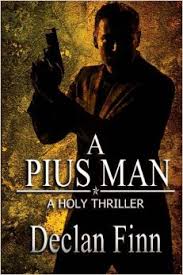When the Consolations of God are Small
Job 15:28-29
The wicked dwell in desolate cities
Ready to become heaps
They are what they are
Neither shall their substance continue
But why must I come forth like a flower
Cut down in sight of His holy mountain?
9/6/2014
This is a sijo I wrote last year, using a random passage of the Old Testament as a poetry prompt. I used a Korean sijo by Kim Inhu (1510-1560) as a model, and the phrase in the poem ‘They are what they are’ was inspired by a similar line in Kim’s poem. Shared on Poetry Pantry #254 on Poets United
Catsong: for Niki
what if my heart is too long or too tall?
what if my cat is too light or too small?
this calico tabby is mine
no matter that her nails are too sharp
the chill moonlight is mine also
to collect in alabaster jars
Dec. 11, 2012
This sijo was written in honor of my elderly cat, Niki. She lived outdoors until the day she decided she didn’t like the other outdoor cats and insisted on coming into the house. I used a poem by Shin Heum as a model, and that poem provided some elements, including the moonlight.
I shared this sijo on Poetry Pantry #143. I made the video last night, with the assistance of Niki the cat. I’ve thought for some time that YouTube gives poets a chance to give poetry readings on line, when we can’t manage to do ones in public.
Writing Sijo
The sijo is written in three lines, though in English each of the three lines is usually broken into two, to keep them from being too long. The first line usually states the theme, the second elaborates on it, and the third line contains a twist on the theme, or a resolution. The lines average 14 to 16 syllables, with the poem as a whole having about forty-one to forty-nine.
My method for writing a sijo is this: I copy out one classic Korean sijo (in English translation) and look at it, count the syllables and such. Then I pick something— usually from a book— to inspire my theme, as I did with the Bible passage in the first poem and my cat Niki in the second.
Challenge: write your own sijo poem. Use a random page from the first book to the left of your computer as a poetry prompt.
Facebook page Sijo Poetry: https://www.facebook.com/pages/Sijo-Poetry/392044370990201
My new Goodreads author page: https://www.goodreads.com/author/show/4813575.Nissa_Annakindt








